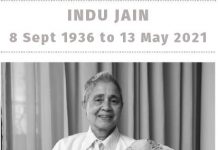
Embarrassment for the Home Ministry headed by Amit Shah as the five-member bench of the Supreme Court unanimously opined that shoddy investigation by the Delhi Police had left them with no option but to acquit the three convicts. A report by Amitabh Srivastva
Three persons convicted to death for gang rape and death of a girl 12 years back in Najafgarh by the Delhi High Court are free, thanks to a judgment of a five member Bench of Supreme Court.
Even as candle-marches for Justice for Kiran Negi in the country are on, there is shock and disbelief at the casual way in which the highest authorities in the country are taking the matter.
Advocate Asheesh Kumar working with Prayas JAC tells Tehelka in an exclusive chat that many people may not know that the culprits had not even asked for a pardon. Their petition was to convert the death penalty to life imprisonment but the Supreme Court in its power vested under Article 142 looked at the evidence before it and set them free.
“The Indian judicial system works under the principle that no innocent person should be punished, due to lack of evidence, however heinous the crime. Here the SC found that the fundamental rights of accused including the right to cross examine the witnesses and witness parade were not followed through.”
Among major lapses pointed by the highest court were
1. None of the witnesses could identify the accused in court
2. None of the witnesses had identified the Red Indica car as they had not seen it.
3. The hair found on the body was suspected to have been put later.
4. The date of death according to post mortem was between 10.02.2012 and 11.02.2012 while prosecution claimed it was night of 09.02.2012 and 10.02.2022.
This is not the first time that the investigation of Delhi Police has come under scanner. During the cases involving the riots in North-East Delhi in 2020, the Delhi High Court had passed strictures against the Delhi Police for botched up investigations.
As a result, even the Supreme Court had vented its anger about it in its order in 2021, saying,”The capital of the country can ill afford another repetition of the occurrence (Delhi riots).”
The exasperation of the Supreme Court was due to the fact that litigation had been going on for more than a year about those arrested for the riots in Delhi in 2020, most of whom had to be released for lack of evidence by the Delhi High Court.
This happened even after the then Delhi police commissioner SN Shrivastava had boasted at a press conference in February 2021 that “extensive use of technologies like facial recognition, drone mapping, retrieving deleted data from electronic devices, CCTV footage, GPS, DNA and fingerprints had helped in arresting the accused in north-east riots, leading to the arrest of 231 accused.”
And now the whole country is in a rage since November 8, 2022, when the Supreme Court Bench comprising the then Chief Justice, UU Lalit, Justice Bela M Trivedi and S Ravindra Bhat released three men convicted of the brutal rape and murder of 19-year old Kiran Negi, a resident of Qutub Vihar, Phase II in Dwarka in February, 2012. The girl was returning home from her work with two other girls.
Before she could reach home she was accosted and kidnapped by three persons in a red Tata Indica. After the police complaint, Rahul (26), Ravi and Vinod (both 22) were picked up. The body of Kiran was found in a mustard field, 30 kilometres away in village Rodhai of Rewari district of Haryana.
This time, the embarrassment for the Home Ministry headed by Amit Shah is worse because the three accused had been convicted and sentenced to death by a Delhi court in February 2014 and subsequently by the Delhi High Court in August 2014.
This rape, incidentally, happened to be even more brutal than that of Nirbhaya which occurred on a December 16 the same year.
Fully aware that there would be huge repercussions of their judgment, the Bench was unanimous that a shoddy investigation by the Delhi Police, which is the best equipped in the country probably only second to Tamil Nadu, left the Court with no option but to acquit the three convicts.
As per the court order, of the 49 witnesses examined by the court, no witnesses had identified the accused.
It also stated that neither the trial court nor the high court examined the underlying basis of the findings in the DNA reports.
Realising the impact this decision was going to send, the highest court candidly admitted that if the accused involved in the heinous crime go unpunished or are acquitted, agony and frustration may be caused to society in general and to the family of the victim in particular.
However, no conviction should be based merely on the apprehension of indictment or condemnation over the decision rendered, the bench said,
It said that every case must be decided by the courts strictly on merit and in accordance with law without being influenced by any kind of outside moral pressure or otherwise.
This clear indictment of the Delhi Police means all the talk of filing a review petition in the Supreme Court by various authorities such as the Chief Minister of Uttarakhand or the Lt Governor of Delhi amounts to barking up the wrong tree.
Unless the Delhi Police, allegedly over-worked by protecting the VIPs of the capital, revises its style, and reworks on the case nothing is going to happen.
Instead of meeting the Law Minister, the CM Pushkar Dhami should have met the Home Minister Amit Shah to have a few heads rolled in Delhi Police.
Even so, the Supreme Court has surprisingly not suggested what action should be taken against the agency for such serious lapses.
And as the hapless parents of the girl are running from one VIP to another seeking justice, Home Minister Amit Shah is camping in Gujarat to ensure a success for the BJP in Gujarat not to be bothered about a simple gang-rape and murder case in Delhi.
No police officer in Delhi is willing to talk on record on this huge lapse but off the record, some of them said that the police particularly in Delhi are working under tremendous pressure and such ‘minor’ lapses do happen.
But Asheesh Kumar doesn’t agree. “I agree there is pressure from the media on the trial court when such a high profile case comes before it but the High Court and Supreme Court cannot break under media glare. As for the police, this pressure is part of their training drill. The police are conditioned to work under the Emergency Response System so this argument does not work,” he said.
A lot of people are scared of commenting on the Supreme Court judgment for fear of contempt proceedings.
But senior advocate of the Supreme Court, Shashank Shekhar clarifies that criticism of an SC judgment is totally acceptable once the judgment has been pronounced.
“This contempt problem is there only as long as the case hearing is pending. But the problem is that the court itself is confused about what constitutes contempt. Many times contempt proceedings are initiated which are dismissed by judges later on as trivial. But for the person who has been summoned, his errand to appear in court for five years has been started.”
Asked if a review petition could change the decision, he said, “Unless there is fresh evidence or something that the Court has missed out on, chances of changing the judgment are rare. And moreover the same Bench will be looking at the same evidence, so expecting a different judgment means expecting a miracle. It’s like children applying for a review of their mark sheets. What actually happens is a re-totalling of the marks, not re-evaluation.”













